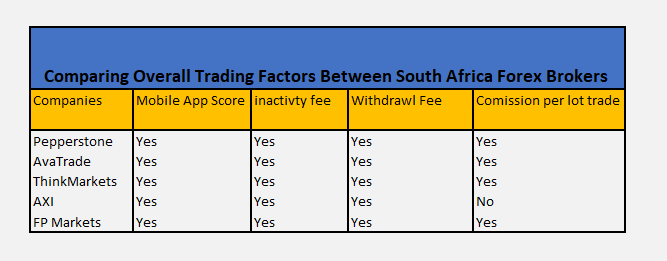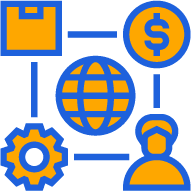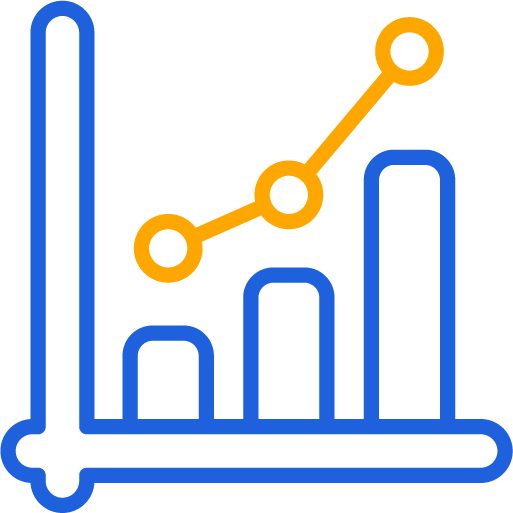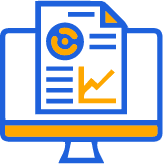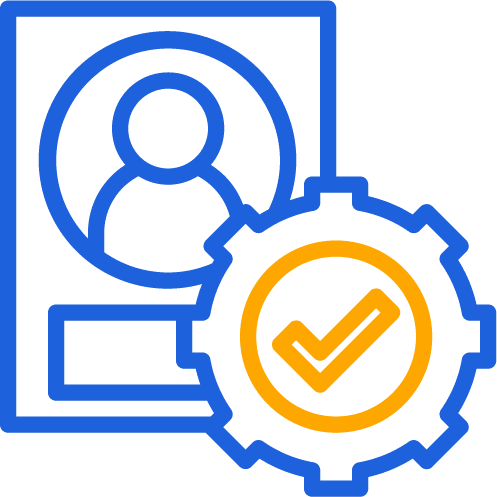Best South Africa Forex Brokers In 2023
Choosing the best South Africa forex broker is one of the most important decisions a trader can make when entering the world of foreign exchange trading. This is particularly true for traders looking for South Africa-based brokers offering the greatest services.
There are around 58 million people living in South Africa at this time. The South African Rand, commonly abbreviated as “ZAR,” is the country’s official currency. The South African Reserve Bank (also known as the SARB) serves as the Central Bank of South Africa. The basic tasks of the SARB are to guarantee price stability, preserve the soundness and integrity of the financial system, implement payment systems, promote a sound financial system, and promote good financial practises. Other responsibilities include promoting a healthy financial system and sound financial practises. In addition to the South African Reserve Bank (SARB), there is also the Financial Sector Conduct Authority (FSCA), which is in charge of regulating the business of providing financial services. The Financial Sector Conduct Authority (FSCA) is entrusted with the responsibility of striving to safeguard the integrity of South Africa’s financial system. This will be accomplished by the FSCA through empowering consumers, advocating fair treatment of customers within the sector, and monitoring ethical and legal standards.
Best South Africa Brokers
We compiled a comprehensive database of best South Africa Forex Brokers who are registered with the South Africa Securities and Investments Commission, and then we rated them by Overall. The best South Africa forex brokers are listed below.
Pepperstone – best South Africa Brokerage
ThinkMarkets – 3rd Best South Africa Brokerage
MultiBankGroup– 5th Best South Africa brokerage
What are the best forex brokers in South Africa in 2023?

Pepperstone stands out as one of the top choices for forex trading in South Africa due to its exceptional combination of features and services. Renowned for its transparency and reliability, Pepperstone is a regulated and reputable brokerage that offers a compelling trading experience. With its competitive spreads, lightning-fast execution speeds, and a wide range of tradable assets, Pepperstone empowers South African traders to engage in the global forex market with confidence.
Pepperstone’s user-friendly trading platforms, including the popular MetaTrader 4 and MetaTrader 5, provide advanced charting tools, technical indicators, and expert advisors, catering to traders of all skill levels. Moreover, its commitment to regulatory compliance, as overseen by reputable authorities, assures South African traders of a secure and trustworthy trading environment.
The brokerage’s emphasis on education and customer support further solidifies its position as a preferred choice. Pepperstone offers a wealth of educational resources, including webinars, tutorials, and market analysis, allowing South African traders to continually enhance their trading knowledge. Backed by responsive customer support that is available 24/5, Pepperstone ensures that traders receive timely assistance whenever needed.
In sum, Pepperstone’s combination of robust trading platforms, competitive pricing, regulatory adherence, and dedicated support makes it a standout option for forex traders in South Africa, solidifying its reputation as one of the best forex brokerages in the region.
You can read the full detail reviews of more than 10,000 words here
AvaTrade has grown into a significant online trading platform since its inception in 2006, with about 200,000 registered clients executing up to 2 million deals each month totaling over $60 billion in trading volume. AvaTrade is regulated by the Central Bank of Ireland, ASIC, IIROC, FSA, FSB, UAE, and the British Virgin Islands, every new customer must pass a few simple compliance tests to verify that you understand the risks of trading and are permitted to trade.
AvaTrade is one of the few brokers who offers both the MetaTrader 4 and MetaTrader 5 platforms. AvaTrade allows the user to perform a 0.01 Lot trade.
Trading Features:
- Allows for scalping
- Allows for hedging
- Minimum deposit is low.
Accounts offered:
- Mini account
- Standard account
- Islamic accountDemo account
- Micro account
Funding methods:
- Skrill
- Payoneer
- PayPal
- NetellerCredit cards
- Bank Transfer
You can read full reviews about AvaTrade here
ThinkMarkets stands out as an exceptional choice for South African clients seeking a reputable and comprehensive forex brokerage. With a solid reputation in the industry, ThinkMarkets offers a range of features that make it a preferred option for South African traders.
One of the key factors that sets ThinkMarkets apart is its strong regulatory framework. The brokerage is regulated by the Financial Sector Conduct Authority (FSCA) in South Africa, ensuring that clients can trade with confidence, knowing that their interests are safeguarded and that the broker adheres to strict financial standards.
ThinkMarkets’ commitment to technological innovation is another noteworthy aspect. The broker provides access to leading trading platforms, such as MetaTrader 4 and MetaTrader 5, which empower South African traders with advanced tools for analysis, execution, and risk management. This robust technology allows clients to make informed trading decisions and execute trades seamlessly.
Furthermore, ThinkMarkets’ dedication to providing competitive trading conditions contributes to its appeal. The broker offers tight spreads, allowing traders to optimize their trading strategies and potentially enhance their profitability. Additionally, ThinkMarkets provides a variety of account types to cater to the diverse needs of South African clients, whether they are beginners or experienced traders.
ThinkMarkets’ commitment to client education and support is also evident. The broker offers educational resources, including webinars, tutorials, and market analysis, to empower South African traders with the knowledge needed to navigate the forex market effectively.
In summary, ThinkMarkets’ combination of regulatory compliance, advanced technology, competitive trading conditions, and client-centric approach makes it an excellent choice for South African traders. Its reputation for reliability and commitment to meeting the unique needs of clients further solidifies its position as a top forex brokerage in the South African market.
Trading Features:
- Offers STP
- Low min deposit
Accounts offered:
- Demo account
- Zero account
- Standard account
- Islamic account
Funding methods:
- Credit cards
- Bank Transfer
- Skrill
- Neteller
You can read the full review here
Axi, which has its headquarters in Australia and was established in 2007, has grown to become one of the most best Forex brokers in the world since then. It has done this by using some of the most renowned trading platforms in the globe. These platforms provide traders access to the most latest market data on forex, CFDs, and indices, which in turn enables them to trade at rates that are continuously competitive.
Traders have access to a wide range of products from which to pick, including contracts for difference (CFDs) based on underlying financial assets such as stock indexes, metals, foreign currencies, and commodities. Axi’s web-based trading platform is also available in a number of other languages for users’ convenience.
Axi also offers mobile trading, which ensures connection across all of the most important platforms and devices, and has servers located in New York, close to the exchange, to facilitate the execution of transactions more quickly. Additionally, it offers Expert Advisors for automated trading, as well as the choice to trade with either Standard or Pro accounts, regardless of whether the scenario is simulated or real.
- Allows hedging
- Offers STP
- Allows scalping
- Free VPS (For clients who trade 20 lots per month)
- Low minimum deposit
Accounts offered:
- Micro account
- Mini account
- Standard account
- Zero spread account
- VIP Account (Axi Elite)
- Demo account
- ECN account
- Islamic account
Funding methods:
- Bank Transfer
- Skrill
- Payoneer
- Credit cards
- Neteller
- Crypto (For clients based outside of Europe)
You can read the full review here
The MultiBank Exchange Group is a one of the best South Africa trading broker that offers services related to foreign exchange trading. Traders have access to a diverse selection of goods in a number of different marketplaces. These items include indices, shares, commodities, and currencies. It is needed that a minimum deposit of fifty dollars be made in order to open a live account, and it is regulated by ASIC, FSC, BaFin, CNMV, and FMA. On the other hand, MultiBank Group gives you access to a no-cost trial account so that you can get a feel for their system and try out different features in a risk-free environment. When compared to the average EUR/USD spread of 0.70 pips, the minimal EUR/USD spread offered by MultiBank Group, South Africa brokerage company, is considered to be typical at 0.8 pips.
At MultiBank Group, you have the opportunity to trade over 20,000 distinct products, among which are more than 55 currency pairings. One of the few South Africa forex brokers that offers both the MetaTrader 4 and MetaTrader 5 trading platforms, Multibank Group is one of such brokers. Check out our MT4 vs MT5 comparison to learn more about the differences between the two platforms. In addition to this, MultiBank Group provides access to their own technology, known as Pure ECN Pro. Traders may do business on their choice of device owing to downloadable applications available for both Mac and Windows operating systems.
You can read the full review here
South Africa Forex Brokers Comparison
Compare South Africa forex and CFDs or make a side-by-side comparison of different forex and CFDs brokers in South Africa by using either the forex broker comparison tool or the summary table that is provided below. This broker list is arranged according to the overall rating that each company has on CompareBroker.io
Comparing Trading Cost of South Africa forex brokers

Comparing Trading platform between South Africa forex brokers

Comparing investment opportunities between South Africa forex broker
We keep a careful eye on the availability of various financial products, including but not limited to social copy trading, forex trading (both CFD and spot), stock trading (both CFD and non-CFD), spread betting, exchange-traded funds (ETFs), and more. Within our comprehensive and impartial database, these different forms of investments are monitored as variables in their own right. Investigate the types of investments that are available at the best forex brokers in South Africa.

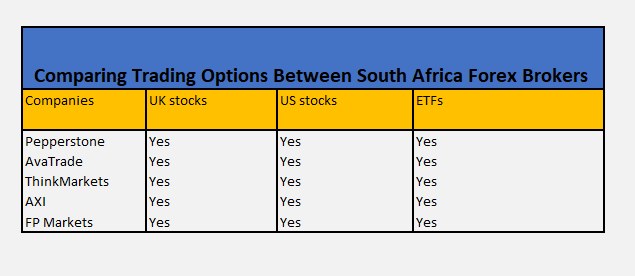
Frequently Asked Questions
How to trade forex
Trading forex involves buying and selling currencies with the goal of making a profit. It can be a complex endeavor, but I’ll provide you with a general overview of the steps involved in trading forex:
Educate Yourself: Before you start trading, it’s crucial to educate yourself about the forex market. Learn about basic concepts such as currency pairs, exchange rates, pips, lots, and different trading strategies. There are numerous online resources, courses, and books available to help you understand the fundamentals of forex trading.
Choose a Reliable Forex Broker: Selecting the right forex broker is essential. Look for a broker that is regulated by a reputable financial authority and offers a user-friendly trading platform. Consider factors such as spreads, commissions, leverage, and available trading tools.
Create a Trading Plan: A trading plan outlines your trading goals, risk tolerance, preferred trading style, and strategy. It should also include rules for entry and exit points, risk management, and position sizing. A well-defined trading plan helps you stay disciplined and make informed decisions.
Practice on a Demo Account: Most brokers offer demo accounts that allow you to practice trading with virtual money. This is a valuable step to gain practical experience and test your trading strategy without risking real funds.
Fund Your Trading Account: Once you’re comfortable with your demo trading, you can fund your live trading account. Deposits can often be made via bank transfer, credit card, or other payment methods.
Start Trading: With a funded account, you can start trading real money. Monitor the forex market, analyze currency pairs, and execute trades based on your trading plan. Remember to start with smaller position sizes and gradually increase as you gain experience.
Technical and Fundamental Analysis: Traders use both technical and fundamental analysis to make trading decisions. Technical analysis involves studying price charts, patterns, and indicators to predict price movements. Fundamental analysis involves analyzing economic indicators, news, and events that impact currency values.
Risk Management: Managing risk is crucial to long-term success. Never risk more than you can afford to lose on a single trade. Use tools like stop-loss and take-profit orders to limit potential losses and secure profits.
Stay Informed: Stay updated on global economic and political events that can influence currency markets. Economic calendars and news sources can help you anticipate market movements.
Continuous Learning: The forex market is dynamic, and continuous learning is essential. Keep refining your trading strategy, learning new techniques, and adapting to changing market conditions.
How to trade forex for beginners
Trading forex as a beginner can be both exciting and challenging. Here’s a step-by-step guide to help you get started with forex trading:
Education and Research:
- Begin by learning the basics of forex trading. Understand key concepts such as currency pairs, pips, lots, leverage, and order types.
- Explore different trading strategies and decide which ones align with your trading goals and risk tolerance.
- Study technical analysis (chart patterns, indicators) and fundamental analysis (economic indicators, news events) to make informed trading decisions.
Choose a Reliable Broker:
- Select a reputable and regulated forex broker. Look for features like user-friendly trading platforms, competitive spreads, good customer support, and educational resources.
- Open a demo account with your chosen broker to practice trading without risking real money.
Develop a Trading Plan:
- Create a well-defined trading plan that outlines your goals, risk tolerance, preferred trading style, and strategy.
- Determine your entry and exit criteria, position sizing, risk-reward ratio, and how you’ll manage trades.
Practice on a Demo Account:
- Use the demo account to practice executing trades and implementing your trading plan.
- Gain experience and build confidence in your trading skills without risking real capital.
Understand Risk Management:
- Never risk more than you can afford to lose on a single trade.
- Use risk management tools like stop-loss orders to limit potential losses.
- Consider your risk per trade as a percentage of your total trading capital.
Start Trading with a Small Account:
- Once you’re comfortable with your demo trading, open a live trading account with a small amount of capital that you can afford to lose.
- Start with smaller position sizes to manage risk as you gain experience.
Monitor the Markets:
- Keep an eye on currency pairs that interest you. Analyze charts, identify trends, and look for potential trading opportunities.
Practice Patience and Discipline:
- Stick to your trading plan and avoid making impulsive decisions based on emotions.
- Be patient and wait for setups that align with your strategy.
Start Simple and Gradually Expand:
- Begin with a single currency pair and master your strategy before diversifying.
- As you gain experience, you can explore more currency pairs and trading strategies.
Keep Learning and Adapting:
- Forex trading is a continuous learning process. Stay updated on market developments, refine your trading strategy, and adapt to changing market conditions.
Keep Records:
- Maintain a trading journal to record your trades, reasons for entry and exit, and lessons learned. This will help you track your progress and improve over time.
Seek Knowledge and Mentorship:
- Read books, watch educational videos, and consider joining trading communities to learn from experienced traders.
- Consider seeking advice from professionals or mentors who can provide valuable insights.
How to trade forex in South Africa?
Trading forex in South Africa offers a pathway to participate in the global financial markets and potentially generate profits through currency fluctuations. As a prospective trader, the first step is to educate yourself about the forex market’s fundamentals, understanding concepts like currency pairs, pips, lots, and leverage. Next, choose a reputable and regulated forex broker that caters to South African clients.
Open a trading account with the chosen broker, providing the required documentation for verification. Many brokers offer demo accounts that allow you to practice trading with virtual funds, helping you gain confidence and refine your trading strategies without risking real money.
Develop a solid trading plan that outlines your objectives, risk tolerance, and preferred trading style. Utilize both technical and fundamental analysis to make informed trading decisions, studying price charts, patterns, indicators, and staying informed about economic news and events that impact currency markets.
Risk management is crucial; never invest more than you can afford to lose on a single trade. Utilize risk management tools like stop-loss and take-profit orders to protect your capital. As you gain experience, gradually increase your position sizes while maintaining prudent risk management practices.
Monitor the forex market closely, execute trades based on your analysis, and adapt your strategies as needed. Stay disciplined, avoid emotional trading, and keep learning and refining your skills over time.
Lastly, be aware of the legal and tax implications of forex trading in South Africa. Consult with financial professionals to ensure compliance with local regulations and to manage your tax obligations. With dedication, education, and a well-defined approach, forex trading in South Africa can offer opportunities for both financial growth and personal development.
How to trade forex with leverage
Trading forex with leverage allows traders to control a larger position size with a relatively smaller amount of capital. Leverage amplifies both potential profits and losses, making it a powerful tool that requires careful consideration and risk management. To trade forex with leverage, a trader first selects a leverage ratio offered by their broker, such as 10:1 or 50:1. For example, with a 50:1 leverage, a trader can control a $50,000 position with just $1,000 of their own capital.
While leverage can enhance gains, it also increases exposure to market fluctuations. Therefore, traders must implement effective risk management strategies, including setting stop-loss and take-profit orders, to limit potential losses. It’s crucial to thoroughly understand the risks associated with leverage and only use it if you have a solid trading plan and the necessary knowledge. As a responsible practice, traders should never risk more than they can afford to lose and should be aware that using high leverage can magnify both profits and losses, requiring a cautious and disciplined approach to trading.
How to trade forex with ai
Trading forex with artificial intelligence (AI) involves using advanced algorithms and technology to make trading decisions. Here’s a general overview of how to trade forex using AI:
Understand AI in Forex Trading:
- Familiarize yourself with the concept of using AI in trading. AI can analyze vast amounts of data, recognize patterns, and make predictions based on historical and real-time market information.
Choose an AI Trading Platform:
- Research and select a reputable AI-powered trading platform or software. These platforms often offer automated trading strategies, signal generation, and other AI-based tools.
Data Collection and Analysis:
- AI systems require historical and real-time market data. Ensure your chosen platform has access to accurate and timely data feeds.
Algorithm Development:
- Depending on the platform, you may need to develop or customize trading algorithms. This could involve coding or configuring the AI to follow specific strategies.
Backtesting:
- Test the AI algorithm using historical data to assess its performance and effectiveness. This helps you understand how the AI would have performed in past market conditions.
Risk Management:
- Implement robust risk management parameters within the AI system. This may include setting stop-loss and take-profit levels, as well as controlling position sizes.
Real-Time Monitoring:
- Once the AI system is live, monitor its performance in real-time. Be prepared to intervene if necessary or adjust settings based on changing market conditions.
Adaptation and Optimization:
- Continuously analyze the AI’s performance and refine the algorithm as needed. Market dynamics can change, requiring adjustments to maintain effectiveness.
Diversification:
- Consider using multiple AI algorithms or strategies to diversify your trading approach and reduce risk.
Understand Limitations:
- While AI can analyze data and patterns, it may not be foolproof. It’s essential to understand that AI systems can also encounter errors and unexpected market movements.
Education and Learning:
- Even if you’re using AI, it’s crucial to understand forex market dynamics and trading principles. This knowledge helps you interpret AI-generated signals and make informed decisions.
Demo Testing:
- Before trading with real money, test the AI system on a demo account to ensure it performs as expected in a live market environment
How to trade forex news
Trading forex news involves capitalizing on significant market movements triggered by the release of economic indicators, geopolitical events, and other news releases. To effectively trade forex news, traders must stay well-informed about upcoming events through economic calendars and news sources. The key lies in anticipating market reactions based on the divergence between the actual data and market expectations. Rapid execution of trades immediately after the news release is crucial, as volatility can lead to swift price movements. It’s essential to employ risk management tools like stop-loss orders to mitigate potential losses, given the unpredictable nature of news-driven market movements. Trading forex news demands a deep understanding of market dynamics, swift decision-making, and the ability to interpret and analyze data in real-time, making it a strategy favored by experienced traders.
Can I do forex trading in South Africa?
Yes, you can engage in forex trading in South Africa. The country has a vibrant and growing forex trading community, and many South Africans participate in the global currency markets. To get started, you’ll need to choose a reputable and regulated forex broker that offers its services to South African residents. Once you’ve selected a broker and opened a trading account, you can begin to trade a variety of currency pairs and potentially profit from the fluctuations in exchange rates. However, it’s important to educate yourself about the forex market, develop a solid trading plan, and practice disciplined risk management to enhance your chances of success. Keep in mind the legal and tax considerations associated with forex trading in South Africa, and consider seeking guidance from financial professionals to ensure compliance with local regulations. With the right approach and dedication to learning, forex trading can be a viable and rewarding endeavor in South Africa.
Can I trade with forex with $100
Yes, you can start trading forex with as little as $100. Many brokers offer micro or mini accounts that allow you to trade with a small initial deposit. These accounts provide an opportunity for beginners to get a feel for real trading while managing their risk. With a $100 investment, you can take advantage of leverage provided by your broker, which allows you to control a larger position size than your initial capital.
However, it’s important to approach trading with caution and a realistic mindset. While starting with a small amount is possible, trading with a limited capital requires careful risk management and a focus on preserving your funds. You should be prepared for the potential of both gains and losses, and it’s advisable to start with smaller position sizes and gradually increase as you gain experience and confidence.
Remember that successful forex trading involves continuous learning, practice, and discipline. It’s recommended to first practice on a demo account to familiarize yourself with the platform and your trading strategy before transitioning to live trading with real money.
Is forex trading safe?
Forex trading, like any form of investment, carries inherent risks and requires careful consideration. While forex trading offers potential for profit, it also involves the possibility of substantial losses. The degree of safety in forex trading depends on factors such as one’s knowledge, experience, risk management strategies, and the reliability of the chosen forex broker. Using regulated and reputable brokers can enhance the safety of your trading experience by ensuring fair practices, secure transactions, and adherence to regulatory standards. Moreover, traders who diligently educate themselves, practice on demo accounts, develop sound trading plans, and exercise disciplined risk management can mitigate risks and create a safer trading environment. It’s crucial for traders to understand that success in forex trading requires continuous learning, careful analysis, and a realistic understanding of both profit potential and potential losses.
Best South Africa Forex Brokers
The best forex brokers in South Africa charge a variety of commissions, which we have outlined in the table below.
